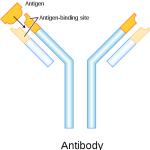Novavax
Disease
The headlines report increasing unexplained deaths, cancers, and heart disease being missed as COVID-19 continues to monopolize our healthcare systems. But what about seasonal flu?
The data set continues to be drawn from Our World in Data and is based on CDC statistics
Global
The data causing concern comes from the UK’s Public Health England’s dataset in a report by the Scientific Advisory Group for Emergencies (SAGE). The same data was reviewed by two groups, using different statistical methodologies.
Before jumping into the data, some quick housekeeping. The data set continues to be drawn from Our World in Data and is based on CDC statistics. It remains reliable.
When we are infected with COVID-19 or if you are one of the fortunate few to have been vaccinated, our immune system kicks in. Based upon COVID's typical clinical course and ability to shed or transmit virus, it takes 10-14 days for your immu
The tracker I am using is Our World In Data.
Why microbes kill some people, but not others is probably the hardest question in all of medical microbiology.
While heart disease and diabetes have been touted as among the most frequent co-morbidities, as Dr.












